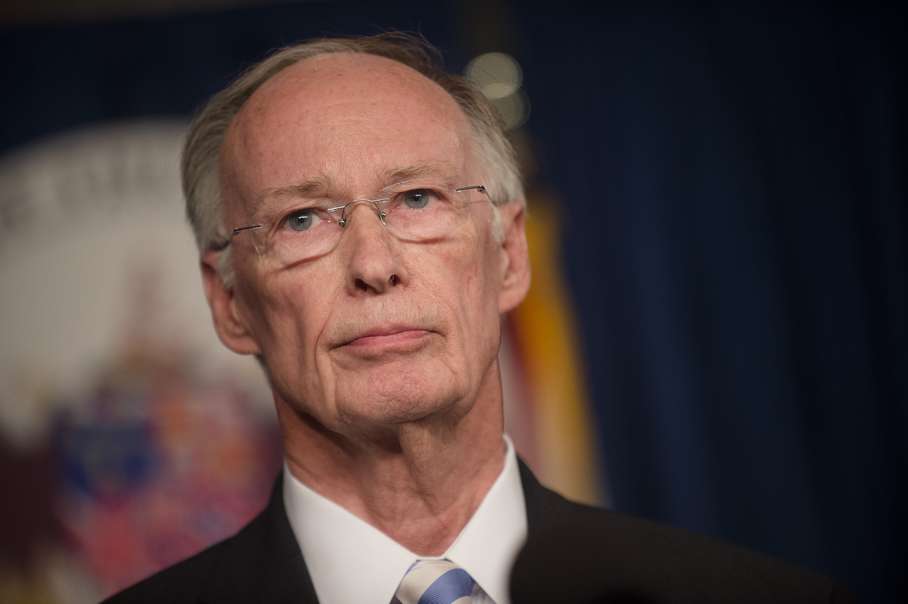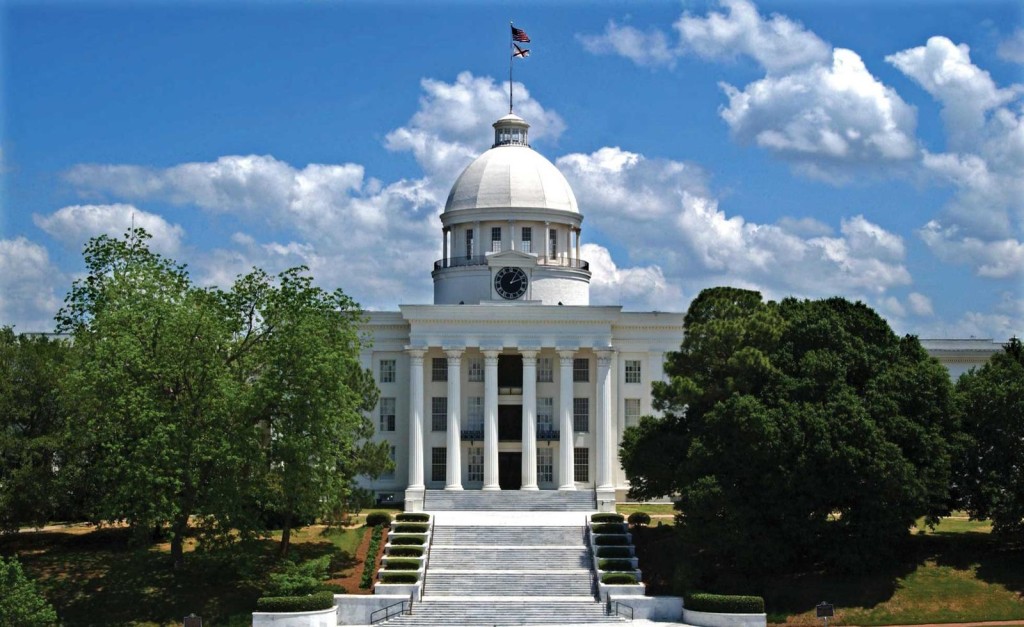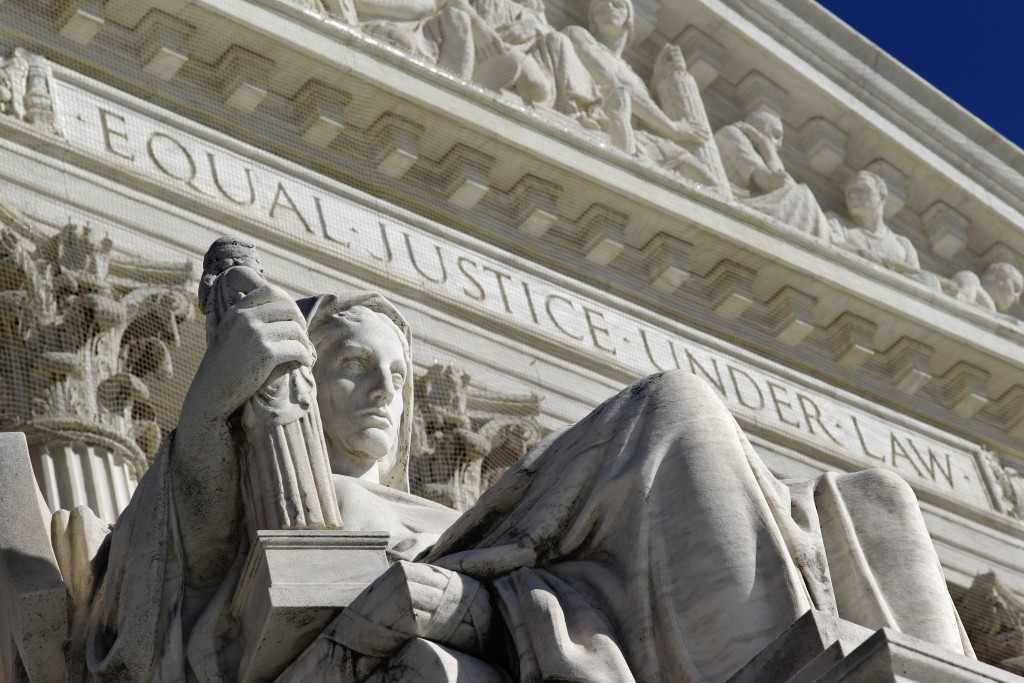Robert Bentley scandal making national headlines amid new revelations

Gov. Robert Bentley has already dominated news in Alabama, where during the spring details of his alleged affair with former adviser and staffer Rebekah Mason and the ongoing impeachment proceedings surrounding it seemed to dominate the news cycle. But now the governor’s press problem has gotten worse still, as GQ writer Jason Zengerle published a scathing article on the matter, bringing national attention to Bentley’s peccadilloes. The story begins with the story of how former First Lady Dianne Bentley surreptitiously recorded her husband at their beach house in Gulf Shores, capturing illicit and somewhat awkward chatter between Bentley and his extramarital partner Mason, and it doesn’t ease up from there. Reads one knife-twisting passage: At first, the governor made idle chitchat, but the conversation soon grew intimate, slipping as it did into the cringe-patois of a randy senior citizen. “I love you,” he told the person on the other end. “When I stand behind you and I put my arms around you, and I put my hands on your breasts, and I put my hands on you and pull you in real close, hey, I love that, too.” Robert went on in this vein for nearly 30 minutes. All the while, Dianne’s iPhone quietly recorded—filling itself with lusty incriminations that eventually would tornado through Alabama and spiral into the craziest political scandal in the country. “Rebekah, I just, I miss you,” he said wistfully at one point. “I worry about loving you so much.” The article, while it focuses on salacious revelations like the above, also puts Bentley in his Alabamian context. “Every governor exists in a perpetually reinforcing bubble of self-regard. But in Alabama, delusions of grandeur can inflate to Mobutu-like proportions,” Zengerle writes. The article also regales readers with the tale of Mason’s ascension within the Bentley administration. After nearly three years on the periphery of the governor’s inner circle, Mason made her move for greater influence in late 2013. According to a person close to her at that time, she thought the governor was being ill-served by his other advisers. Bentley’s approval numbers were high, but Mason, who had recently begun working for his re-election campaign, believed that he’d squandered his first term and that he needed to be more aggressive. Before long, she was functioning as Bentley’s top adviser. “He didn’t have a voice,” one friend of Mason’s told me, “until she helped him find it.” And then, as we all are familiar with by now, things took another turn. … Bentley—an awkward man with a heart-rending comb-over who’d married young and come late to his lofty position—was unaccustomed to female attention. And foolishly susceptible to it. When his advisers would caution him about pushing for things the legislature wouldn’t support, like a teacher pay raise, Mason would counter in a syrupy voice, “But you’re the governor. People love you.” Of course, it’s impossible to know when Bentley and Mason’s relationship became more than just professional. (Neither Bentley nor Mason responded to GQ’s interview requests. Bentley has apologized for making “inappropriate remarks” to Mason, and both have denied having a “physical affair.”) But their closeness had become noticeable and, to those around the governor, increasingly troubling. Beyond a vivid recounting of the Bentley affair, so to speak, the article also contains new revelations that are of note to Alabama pol watchers. For instance, this hot take from a former Bentley loyalist: “When she became his top political adviser, it was like the Hindenburg came down and fell on the Titanic as the Titanic hit the iceberg. I was watching a woman who didn’t know how a bill becomes a law running the state of Alabama.” To boot, the story revealed new details about Bentley’s fondness for the iPhone’s red rose emoji, financial difficulties in Mason’s family life that more or less led to her appointment with the Bentley administration in the first place, and drama over Bentley’s wife and children, who nearly boycotted the governor’s second inauguration and, cruelly, ended up seated just behind Mason’s family. Read the full piece here.
Alabama Councilwoman Sheila Tyson complains Holocaust memorial is racist, ‘dead is dead’

Birmingham City Councilwoman Sheila Tyson is making national headlines for going on a bizarre rant questioning why the Magic City would help fund a Holocaust memorial as it would honor people who are dead. “Dead is dead, right?” she asked, referring to the similarities between a memorial to the Holocaust and the local Shadow Lawn cemetery. “Isn’t it still for dead people,” Tyson continued . “It is for dead people. Aren’t the people they are memorializing deceased?” The proposed Holocaust memorial could go in a garden space on 19th Street at 3rd Avenue North. The city was asking council to move $45,500 from youth services to help clear the lot. The Birmingham Holocaust Education Center (BHEC) raised private funds to build the memorial. But Councilwoman Tyson had more questions. “What’s the difference?” she asked. “I hope we can come together as a city,” said Rebecca Dobrinski, the memorial center’s executive director. The memorial would honor victims of the Holocaust that had ties to Birmingham. “Our Holocaust memorial garden, while it does honor those who perished, it is also telling the stories of those who survived and came to Birmingham and Alabama their home,” Dobrinski explained. “It is meant to teach the community of the consequences of prejudice and hate,” Dobrinski continued. “That is the lesson of the Holocaust. Our goal is to teach the lessons of the Holocaust … so that we do not go down that slippery slope of hate again.” City Council decided to table the issue for another week until the project’s developer could answer questions for Tyson and other reluctant officials. In response to the council meeting, the BHEC posted the following Wednesday on Facebook: The BHEC was surprised and disappointed by the reaction of the Birmingham City Council during the meeting on Tuesday, June 21. The BHEC has been working with representatives from the City for over two years on the Holocaust Garden project. The purpose of the Holocaust Garden is not only to remember those who perished during the Holocaust, to honor those survivors who settled in Birmingham and Alabama after the war, but especially to teach the history and lessons of the Holocaust. Our goal with the Garden is for it to be a tool to educate our community on the consequences of prejudice and discrimination so that future generations do not go down that same slippery slope of hate. Watch the video of the council meeting here:
Acting Speaker Victor Gaston will not run to succeed Mike Hubbard

The fallout from Speaker Mike Hubbard‘s decline and fall from atop Alabama’s state government continued this week. Acting House Speaker Victor Gaston, widely speculated to be a candidate to replace his erstwhile superior, announced Wednesday evening he will not run in an upcoming special election to replace Hubbard. “After careful thought and much prayerful consideration, I have decided that I will not be a candidate for Speaker of the House when the Alabama Legislature convenes again,” said Gaston, a Republican from Mobile. “While I am deeply grateful to the constituents, colleagues, friends, and family who have encouraged me to seek the job, I do not feel God calling me in that direction,” Gaston continued. The Speaker Pro Tem added that he would continue to direct his energies toward representing his House District 100, rather than focusing on taking the reins as Speaker. “In my remaining time as Acting Speaker, I will work to ensure that the daily administrative functions of the House operate smoothly and that the body continues to have a steady hand guiding its course through sometimes turbulent waters,” said Gaston. Gov. Robert Bentley has declared that a special election will be held on Sept. 13 to replace Hubbard in the Legislature.
Alabama politicians react to U.S. Supreme Court immigration ruling

Thursday, the U.S. Supreme Court issued a 4-4 tied ruling in the case of United States v. Texas, which effectively blocks President Barack Obama’s proposed immigration plan that sought to shield millions living in the U.S. illegally from deportation. The single-sentence opinion effectively kills the plan for the duration of Obama’s presidency. Obama expressed disappointment Thursday in the deadlocked ruling, saying the decision “takes us further from the country that we aspire to be.” “For more than two decades now our immigration system, everybody acknowledges, has been broken,” Obama continued. “And the fact that the Supreme Court wasn’t able to issue a decision today doesn’t just set the system back even further, it takes us further from the country that we aspire to be.” Here are reactions from elected officials and political groups in Alabama. We will be updating this post as they come in: U.S. Sen. Richard Shelby: Today’s Supreme Court decision, which effectively blocks President Obama’s immigration executive actions, is a victory for our system of checks and balances. Time and again, the Obama Administration has attempted to circumvent Congress and push its agenda on the American people through executive fiat. While I am pleased that the Supreme Court has halted this unprecedented power grab for now, today’s decision underscores the importance of electing a president in November who will put a conservative on the Court to defend our Constitution. U.S. Sen. Jeff Sessions: Today’s decision in United States v. Texas is not just a victory for Texas, Alabama, and a majority of the States in this great nation who challenged the lawless actions of the Obama Administration, but a victory for the American people and for the rule of law. Read his full statement here. Alabama 1st District U.S. Rep. Bradley Byrne: Once again, the Obama Administration has suffered defeat due to their failure to follow the Constitution and the laws of our country. This decision is a major victory for the rule of law and our opposition to illegal executive amnesty. Instead of continuing to encourage amnesty, the executive branch should enforce the immigration laws already on the books and finally secure our borders. Alabama 2nd District U.S. Rep. Martha Roby: The Supreme Court’s decision affirms the separation of powers, one of the most fundamental governing principles in our Constitution. The president cannot legislate or rule like a king. I believe this decision sends a strong message to President Obama and future presidents that constitutional order and the rule of law must prevail in this country. Our illegal immigration problem is very real. President Obama’s amnesty orders only served to exacerbate the problem by inviting even more illegal immigrants to cross our border and by poisoning any progress Congress could make toward meaningful solutions. Amnesty won’t solve our immigration problems. We have to secure the border and enact better polices that discourage illegal entry, punish lawbreakers and promote America’s economic interests. Alabama 3rd District U.S. Rep. Mike Rogers: Today’s decision to halt President Obama’s executive amnesty is an important victory for the rule of law and Constitutional government. I was proud to sign on to amicus briefs throughout this case and to give the House an official voice in the Supreme Court by voting for H. Res. 639 in March. I firmly believe the President’s unilateral act to grant legal status to millions of illegal immigrants clearly undermines the power of Congress and the Constitution’s system of checks and balances. Congress must move forward with legislation to secure our borders and create real consequences for people who openly flaunt our immigration laws. Alabama 6th District U.S. Rep. Gary Palmer: Today the Supreme Court put the power back in the hands the American people, not President Obama’s,” said Palmer. “Their 4-4 tied decision thwarts the President’s attempt to unconstitutionally overrule current immigration laws. Laws are made by the people through their elected representative, not through executive action. We must work together to enforce our current immigration laws and secure our borders, but today we celebrate this victory for the American people. Alabama Attorney General Luther Strange: This is a strong victory for the Constitution, the rule of law and for the conservative Attorneys General who took this important case all the way to the highest court in the land and prevailed,” said Attorney General Strange. Today’s Supreme Court 4-4 tie vote effectively blocks President Obama’s illegal executive amnesty program, allowing the lower federal court ruling against the immigration program to stand. Alabama was one of more than two dozen states joined in a legal challenge of President Obama’s plan to grant amnesty to millions of illegal aliens. Today’s decision should send a strong signal to the President and his administration that they cannot continue to ignore the Constitution, Congress and the rule of law.
Barack Obama immigration plan blocked by 4-4 tie at Supreme Court

A tie vote by the Supreme Court is blocking President Barack Obama‘s immigration plan that sought to shield millions living in the U.S. illegally from deportation. The justices’ one-sentence opinion on Thursday effectively kills the plan for the rest of Obama’s presidency. The outcome underscores that the direction of U.S. immigration policy will be determined in large part by this fall’s presidential election, a campaign in which immigration already has played an outsized role. People who would have benefited from the programs face no imminent threat of deportation because Congress has provided money to deal with only a small percentage of people who live in the country illegally, and the president retains ample discretion to decide whom to deport. A tie vote sets no national precedent but leaves in place the ruling by the lower court. In this case, the federal appeals court in New Orleans said the Obama administration lacked the authority to shield up to 4 million immigrants from deportation and make them eligible for work permits without approval from Congress. Texas led 26 Republican-dominated states in challenging the program Obama announced in November 2014. Congressional Republicans also backed the states’ lawsuit. The Obama administration announced the programs – protections for parents of children who are in the country legally and an expansion of the program that benefits people who were brought to this country as children – in November 2014. Obama decided to move forward after Republicans won control of the Senate in the 2014 midterm elections, and the chances for an immigration overhaul, already remote, were further diminished. The Senate had passed a broad immigration bill with Democratic and Republican support in 2013, but the measure went nowhere in the GOP-controlled House of Representatives. The states quickly went to court to block the Obama initiatives. Their lawsuit was heard by U.S. District Judge Andrew Hanen in Brownsville, Texas. Hanen previously had criticized the administration for lax immigration enforcement. Hanen sided with the states, blocking the programs from taking effect. The 5th U.S. Circuit Court of Appeals also ruled for the states, and the Justice Department rushed an appeal to the high court so that it could be heard this term. A nine-justice court agreed to hear the case in January, but by the time of the arguments in late April, Justice Antonin Scalia had died. That left eight justices to decide the case, and the court presumably split along liberal and conservative lines, although the court did not say how each justice voted. Had Scalia still been alive, though, he almost certainly would have voted with his fellow conservatives to form a majority in favor of the states. In practical terms, a victory by presumptive Republican nominee Donald Trump could mean an end to the programs anyway, since he has vowed to deport the roughly 11 million immigrants who are in the United States illegally. If Hillary Clinton, the presumptive Democratic nominee, is elected, she could attempt to revive the programs or work with the new Congress on comprehensive immigration legislation. If Clinton wins, the Senate will at some point fill the vacancy created by Scalia’s death – either with Obama’s nominee, Judge Merrick Garland, or a Clinton choice. In either case, legal challenges to executive action under her administration would come to a court that would have a majority of Democratic-appointed justices and, in all likelihood, give efforts to help immigrants a friendlier reception. Republished with permission of The Associated Press.
Amid campaign worries, Donald Trump to check on golf courses in Scotland

Facing questions about meager fundraising, slipping poll numbers and campaign instability, Donald Trump is tending to business – in Scotland. In his first international trip since becoming the presumptive Republican nominee, Trump plans to check on a pair of his championship golf resorts. Some Republicans worry that the billionaire’s attention is divided between his businesses and his campaign “I’m not sure what the purpose of the trip is,” said Sen. John Thune, R-S.D., who added that he hopes Trump “would get back here quickly.” Trump’s son, Eric, who oversaw the two-year, more than $300 million renovation at the Trump Turnberry golf course, dismissed those concerns, saying “the eyes of the world” will be on his father during a two-day stay in Scotland that begins Friday. “The Turnberry course is one of the crown jewels of the golf world and is now one of the crown jewels of our family’s properties,” Eric Trump said this week in an interview with The Associated Press. “He’s over there to inspect the course and to support his son who put a tremendous amount of time and energy into the project.” Trump’s first stop Friday morning will be in Turnberry, which is nestled along Scotland’s western rocky coast and has been in use for more than a century. The site, which Trump bought in 2014, has hosted four British Open championships, was used as an airplane landing strip during both world wars and features a lighthouse that stands on the ruins of a 13th century castle. He will visit another course he owns, in Aberdeen, on Saturday before returning to the United States after just 36 hours. “It’s a brief but important visit and then he will be back on the campaign trail,” Eric Trump said. The trip comes at a precarious time for the United Kingdom. Trump is expected to arrive a day after Britons vote on whether to remain in the European Union. But it comes during what should be rare quiet days in the presidential campaign, with his likely rival, Hillary Clinton having no planned events. Trump does not have any meetings scheduled with Scottish political leaders, his campaign said. That stands in contrast to previous presidential nominees’ foreign trips. In 2012, for instance, Mitt Romney met with British Prime Minister David Cameron. Then-Sen. Barack Obama met with German Chancellor Angela Merkel in 2008. Trump is slated to hold a news conference while in Scotland and could weigh in on Britain’s “Brexit” vote. The celebrity businessman said this week he supports Britain’s exit from the EU. “I don’t think anybody should listen to me because I haven’t really focused on it very much,” he told Fox Business Network this week, “but my inclination would be to get out, you know, just go it alone.” Tensions around the vote grew last week when Jo Cox, a member of Britain’s Parliament who was a vocal supporter of the UK remaining in the EU, was murdered. The man accused in the slaying later said “My name is death to traitors, freedom for Britain” when asked in court to state his identity. Trump, whose mother was born in Scotland, has long emphasized his ties to the country, but he has waged several battles with those in his ancestral homeland. Earlier this year, he was stripped of an honorary degree from Robert Gordon University in Aberdeen. Trump was initially welcomed by Scottish leaders. But relationships soured as arguments ensued over a nearby wind farm and the levels of investment promised. Trump feared the wind farm would block the view from his course. He claimed he had received assurances that it would not be built. Trump denounced a leading Scottish politician, Alex Salmond, as “an embarrassment to Scotland.” Trump also faced opposition from environmental groups concerned about development on Aberdeen’s famed dunes and local people who refused to make way for the development. This was captured in a documentary, Tripping Up Trump. Trump’s trip also comes just days after he dismissed his campaign manager, Corey Lewandowski, and reported having just $1.3 million in cash on hand at the start of June, more than $41 million behind Clinton. But some of his allies insisted the trip would not be a distraction. “A presidential candidate has every right to take a few days off and be with his family,” said Ed Cox, the chair of the New York State Republican Party. “Besides, the general election doesn’t really start until the convention next month. He has plenty of time.” Republished with permission of The Associated Press.


